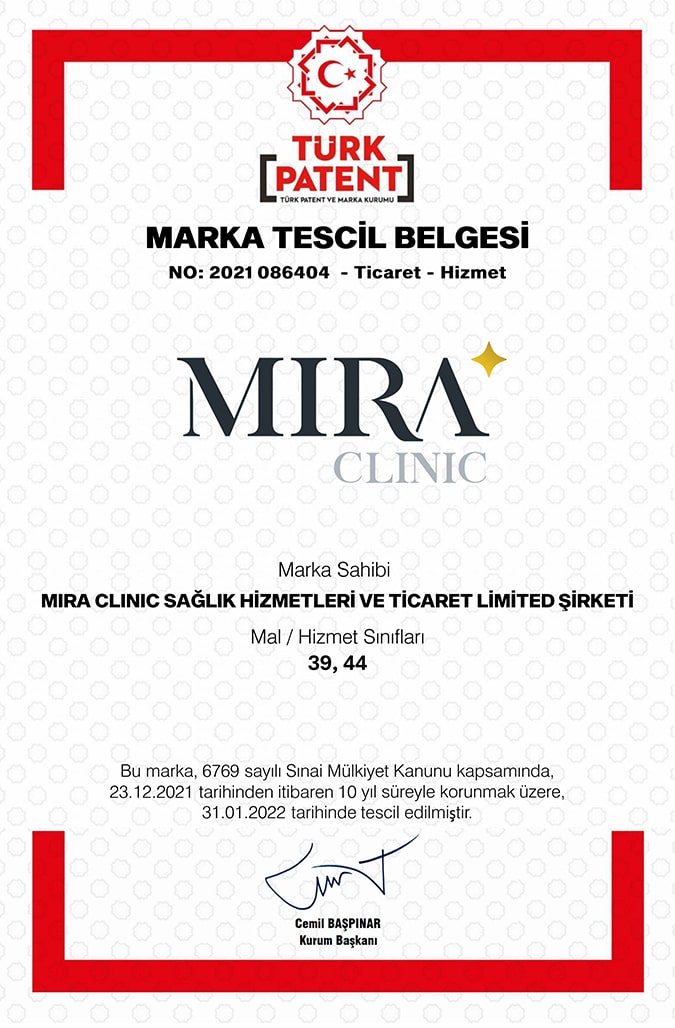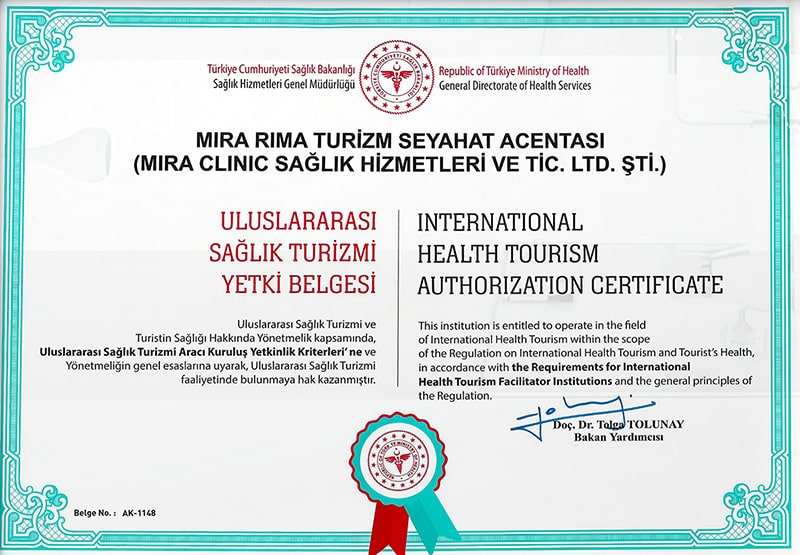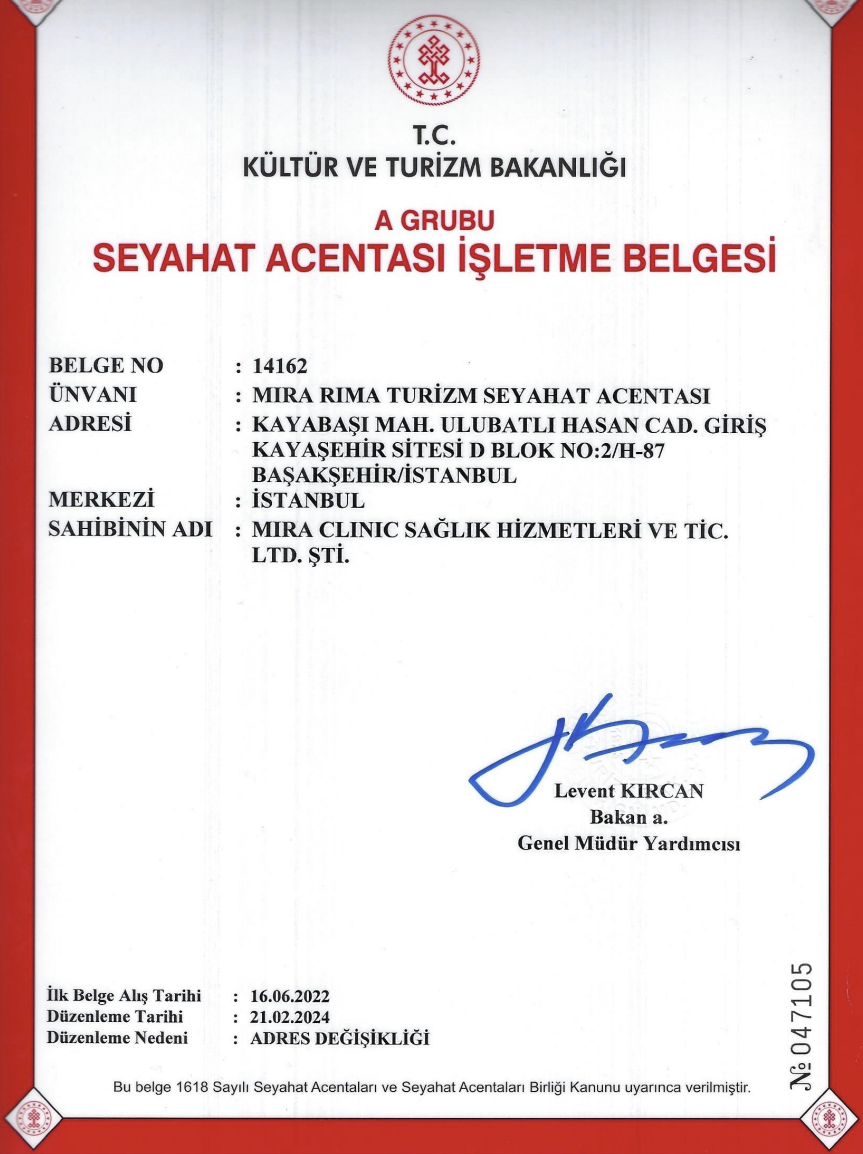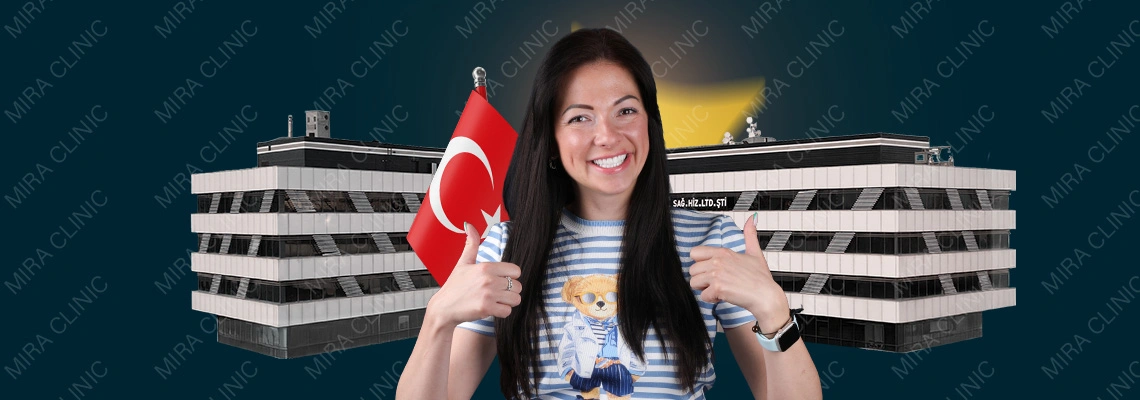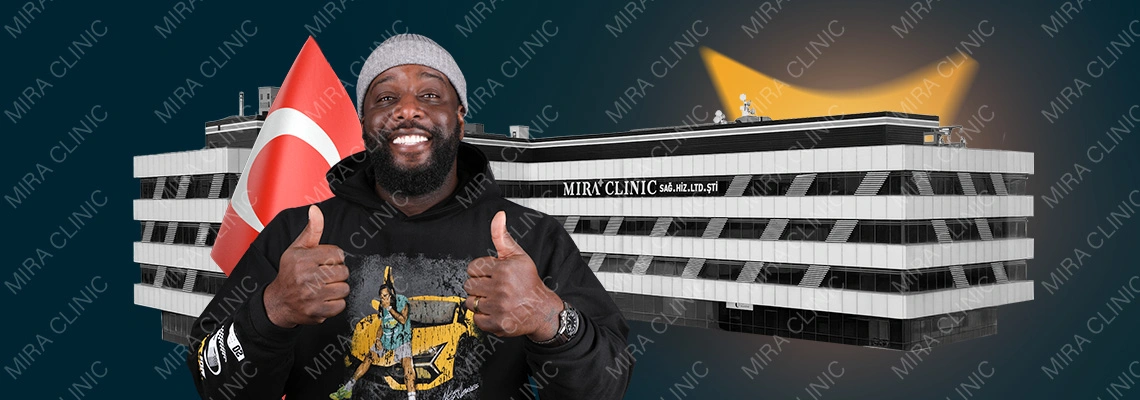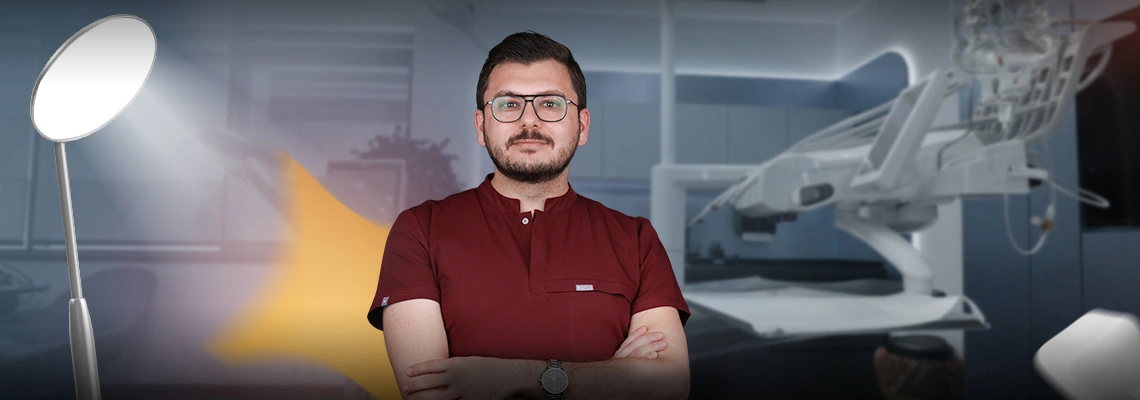Many obese people have increased their turnout for gastric band surgery in Turkey, it is one of the most common obesity treatment procedures worldwide and can help you lose excess weight and improve your health and quality of life. In this article, we will explain everything you need to know about gastric banding surgery in Turkey.
Table of contents:
- What is gastric band surgery?
- Why should you do a gastric band in Turkey?
- Who is the right candidate for gastric band surgery?
- What are gastric band surgery benefits?
- How do you prepare for gastric band surgery?
- What does a gastric band do?
- How long does a gastric band surgery last?
- Gastric band vs sleeve surgery: Which weight loss surgery should you choose?
- Is a gastric band painful? How painful is it?
- What are gastric band side effects?
- What are the complications of gastric band surgery?
- Gastric band surgery recovery tips
- Is there any diet after gastric band surgery?
- Gastric band surgery cost in Turkey
- The gastric band before and after
What is gastric band surgery?
The process of gastric band surgery involves encircling the stomach with a band to decrease its size. A port located beneath the skin allows you to adjust the band. By reducing your appetite and helping you feel fuller sooner, the band can aid in weight loss and the prevention of diseases linked to obesity. The band may lessen your appetite and cravings because it influences hunger hormones like ghrelin. Under general anesthesia, gastric band surgery is carried out, typically involving small abdominal incisions. The band creates a stoma, a tiny opening that controls food passage between the two sections of the stomach.
Related articles:
Why should you do a gastric band in Turkey?
Turkey is a popular destination for medical tourism, especially for bariatric surgery. There are many reasons why you should consider doing a gastric band in Turkey, such as:
-
High-quality and affordable health care: Turkey has many accredited hospitals and clinics that offer gastric band surgery at a fraction of the cost compared to other countries The low cost does not compromise the quality of care, as Turkey has well-trained and experienced bariatric surgeons who use the latest technology and equipment. Turkey also has strict regulations and standards for patient safety and satisfaction.
-
Easy travel and visa: Turkey is easily accessible from many countries, It offers a visa-free or e-visa entry for citizens of many countries, making it convenient and hassle-free to travel. You can also enjoy the beauty and culture of Turkey during your stay, as it has many historical and natural attractions to explore.
-
Comprehensive and personalized service: Turkey offers a comprehensive and personalized service for gastric band surgery patients, from the initial consultation to the follow-up care.
Who is the right candidate for gastric band surgery?
Gastric band surgery is not for everyone who wants to lose weight. It is a serious and permanent decision that requires commitment and lifestyle changes. To be eligible for gastric band surgery, you need to meet certain criteria, such as:
-
Having a body mass index (BMI) of 40 or more, or a BMI of 35 or more with at least one obesity-related condition, such as diabetes, high blood pressure, or sleep apnea.
-
Having tried and failed to lose weight through diet and exercise for at least six months.
-
Being at least 18 years old and having a stable weight for at least one year.
-
Being mentally and emotionally ready for the surgery and its consequences.
-
Having realistic expectations and goals for the surgery and its outcomes.
-
Being willing and able to follow the dietary, exercise, and medical recommendations before and after the surgery.
-
Having no medical contraindications or complications that would make the surgery unsafe or ineffective.
What are gastric band surgery benefits?
There are numerous advantages to gastric band surgery for your health and wellbeing, including:
-
Significant and long-lasting weight loss: Within the first two years following gastric band surgery, you can lose up to 50% of your excess weight and keep it off for at least five years.
-
Improvement or resolution of obesity-related conditions: You can experience improvements in your breathing, sleep, mobility, and joint pain in addition to lowering your blood pressure, cholesterol, triglycerides, blood sugar, and blood pressure after gastric band surgery. It can also prevent or reverse the negative effects of obesity, including heart disease, stroke, kidney disease, and certain cancers. It can also lessen or eliminate your need for medication.
-
Extended life expectancy and decreased mortality: Having gastric band surgery can lengthen your life and lower your chance of passing away.
How do you prepare for gastric band surgery?
You should mentally and physically prepare for the procedure and its aftermath before having gastric band surgery. Among the actions you must do are:
-
Adhere to a pre-operative diet: Two to four weeks before surgery, your bariatric surgeon will prescribe a specific diet for you to follow. Generally speaking, the diet is high in protein and fluids and low in calories, fat, and carbs.
-
Give up drinking and smoking: At least six weeks before the procedure, you must give up smoking and alcohol because these habits can impede the healing process and raise the possibility of complications.
-
Comply with prescription instructions: It's important to let your bariatric surgeon know about all of the drugs, vitamins, and herbal remedies you're taking
What does a gastric band do?
A device called a gastric band is used to decrease the size and capacity of the stomach. It is situated around the upper abdomen region. It functions by forming a tiny pouch that can only contain a small quantity of food, which causes you to feel fuller more quickly and consume less. Moreover, the band lengthens the time that food feels full and lowers hunger hormones by postponing food's movement from the upper to the lower part of the stomach. The gastric band-aids in weight loss and enhance your health by restricting your food intake.
How long does a gastric band surgery last?
The average length of a gastric band surgery procedure is between thirty and sixty minutes. Because general anesthesia is used, you won't feel any pain and will be asleep during the procedure. Your abdomen will be divided into multiple small incisions, and the surgeon will insert a laparoscope, a thin tube equipped with a camera and light, along with other surgical tools. After that, the surgeon will sew the band around the upper portion of the stomach. The band will be attached to a port beneath the skin, which will be used to subsequently modify the band's tightness. After that, the surgeon will bandage and use stitches or staples to close the incisions.
Gastric band vs sleeve surgery: which weight loss surgery should you choose?
Gastric band and sleeve surgery are two types of weight loss surgery that aim to reduce the size of the stomach and limit the amount of food intake. However, they have different pros and cons that may affect your choice. Gastric band surgery involves placing an adjustable band around the upper part of the stomach, creating a small pouch that can be filled or emptied with saline solution. This surgery is reversible, has lower risks of complications, and requires more follow-up visits and adjustments. Gastric sleeve surgery involves removing a large portion of the stomach, leaving a narrow tube that can hold less food. This surgery is permanent, has higher risks of complications, and requires less maintenance and monitoring. Both surgeries can result in significant weight loss and improvement in obesity-related conditions, but they also require lifelong changes in diet and lifestyle habits. The best option for you depends on your personal preferences, goals, medical conditions, and consultation with your bariatric surgeon.

Is a gastric band painful? How painful is it?
Because gastric band surgery is a minimally invasive procedure utilizing laparoscopic instruments and tiny incisions, it is not a particularly painful procedure. You won't experience any pain or discomfort during the procedure because you will be under general anesthesia. Following surgery, you might have mild to moderate pain and soreness in your shoulders, back, chest, and abdomen. Your surgeon can prescribe painkillers and anti-inflammatory medications to help you manage this discomfort. Within a few days, the pain usually goes away, and a week later, you can get back to your regular activities.
What are gastric band side effects?
Gastric band surgery is generally safe and effective, but like any surgery, it may have some side effects or risks. Some of the common side effects of gastric band surgery are:
-
Nausea, vomiting, or reflux: these are the most common side effects of gastric band surgery, you should eat small and frequent meals, chew your food well, drink enough fluids, and avoid foods that are high in fat, sugar, or fiber.
-
Constipation or diarrhea: to avoid or reduce these side effects, you should drink at least 1.5 liters of water per day, eat foods that are rich in fiber, such as fruits, vegetables, and whole grains, and engage in moderate physical activity for at least 30 minutes per day.
-
Hair loss or thinning: this is a rare but possible side effect of gastric band surgery, and it usually occurs when you do not get enough protein, iron, zinc, or biotin in your diet.
What are the complications of gastric band surgery?
Some of the possible complications of gastric band surgery are:
-
Band slippage or erosion: this is when the band moves out of place or erodes into the stomach wall, causing pain, nausea, vomiting, reflux, or obstruction
-
Port or tubing problems: this is when the port or tubing that connects the band to the port becomes damaged, disconnected, infected, or twisted, causing pain, leakage, or malfunction of the band. It can be caused by trauma, infection, or mechanical failure
-
Gastric perforation or bleeding: This is when the stomach or esophagus is punctured or torn by the band, the instruments, or the sutures, causing pain, bleeding, infection, or shock.
-
Gastric pouch dilation or enlargement: this is when the upper pouch of the stomach stretches or expands over time, reducing the effectiveness of the band and causing weight to regain, hunger, or reflux.
Gastric band surgery recovery tips
follow some tips to ensure a successful and comfortable recovery, such as:
-
Rest and relax: You will need to stay in the hospital for one or two nights after the surgery, and then rest at home for about a week. You should avoid any strenuous activities, such as lifting, bending, or driving until your surgeon clears you. You should also avoid any stress, anxiety, or depression, as they can affect your healing and weight loss.
-
Take your medications as prescribed: You will be given some medications to prevent or treat pain, infection, inflammation, and blood clots after the surgery. You should take them as instructed by your surgeon or pharmacist, and do not stop or change them without consulting your doctor
-
Follow a post-operative diet: You will need to follow a specific diet for the first four to six weeks after the surgery, to allow your stomach to heal and adjust to the band. The diet consists of four phases: liquid, puree, soft, and regular.
-
Exercise regularly: You will be encouraged to start walking as soon as possible after the surgery, to prevent blood clots and speed up your recovery. You should gradually increase your physical activity, as tolerated, until you reach at least 150 minutes of moderate-intensity exercise per week, such as brisk walking, cycling, swimming, or dancing.
-
You will need to see your bariatric surgeon and your dietitian regularly after the surgery, to monitor your progress and health.
Is there any diet after gastric band surgery?
Indeed, following gastric band surgery involves following a diet, and doing so is critical to the safety and success of your weight loss efforts. The diet following gastric band surgery is more flexible and varied than the diet before the procedure, but there are still some guidelines and regulations to adhere to, as follows:
-
Eat small, frequent meals: Try not to skip or postpone meals; instead, aim for three to five small meals each day.
-
Consume a variety of foods from all the food groups, including whole grains, lean protein, low-fat dairy, fruits, and vegetables. This will ensure that your diet is well-balanced and nutrient-rich.
-
Make sure you get enough fluids. Aim for at least 1.5 liters of water each day.
Gastric band surgery cost in Turkey
Gastric band surgery cost in Turkey varies depending on the hospital, the surgeon, the package, and the exchange rate. However, it is generally much cheaper than in other countries. The average price of gastric band surgery in Turkey is around $3,000.The cost of gastric band surgery in Turkey usually includes the following services:
-
Pre-operative tests and consultations
-
Hospital fees
-
Surgeon fees
-
Anesthesia charges
-
Band and port charges
-
Post-operative care and follow-up
-
Medications and supplements
-
Transportation and accommodation
Some hospitals and clinics may also offer additional services, such as airport transfers, translation services, travel insurance, or sightseeing tours, for an extra fee.
The gastric band before and after
Gastric band surgery can help you lose weight, improve your health, and enhance your quality of life. You can expect to lose up to half of your excess weight, improve or resolve many obesity-related conditions, and feel better about yourself and your life. However, you will also need to follow a healthy diet, exercise regularly, and attend follow-up visits and adjustments. You will also need to deal with some physical and emotional changes and challenges, such as loose skin, hair loss, food intolerance, or body image issues. You should seek help and support from your bariatric team, your family, your friends, or your peers, whenever you need it. Gastric band surgery is not a magic solution, but a tool that can help you achieve and maintain your weight loss goals, if you use it correctly and wisely.
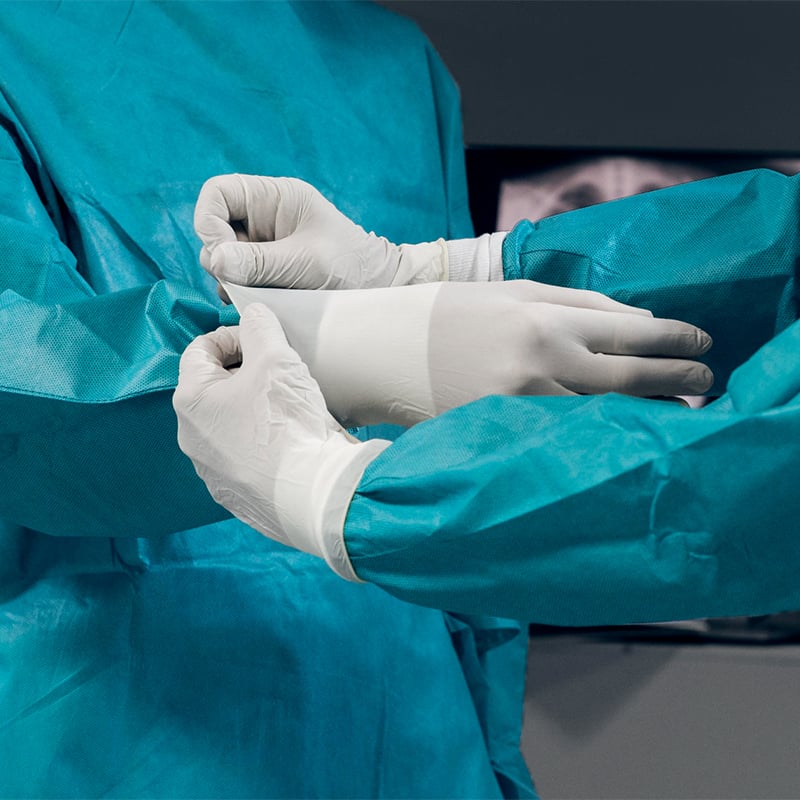
Sources:
- Weight loss surgery
- https://www.nhs.uk/conditions/weight-loss-surgery/
- Gastric Banding Surgery for Weight Loss
- https://www.webmd.com/obesity/gastric-banding-surgery-for-weight-loss
- Risks- Weight Loss Surgery
- https://www.nhs.uk/conditions/weight-loss-surgery/risks/
- Bariatric surgery
- https://www.mayoclinic.org/ar/tests-procedures/bariatric-surgery/about/pac-20394258
- weight loss surgery- Types -NSH
- https://www.nhs.uk/conditions/weight-loss-surgery/types/
- Choosing a Type of Weight Loss Surgery
- https://www.webmd.com/obesity/weight-loss-surgery-making-the-choice
- Diet after gastric band surgery
- https://www.guysandstthomas.nhs.uk/health-information/diet-after-weight-loss-surgery/diet-after-gastric-band-surgery
- Understanding the Requirements for Weight Loss Surgery
- https://www.healthline.com/health/weight-loss/requirements-for-weight-loss-surgery
